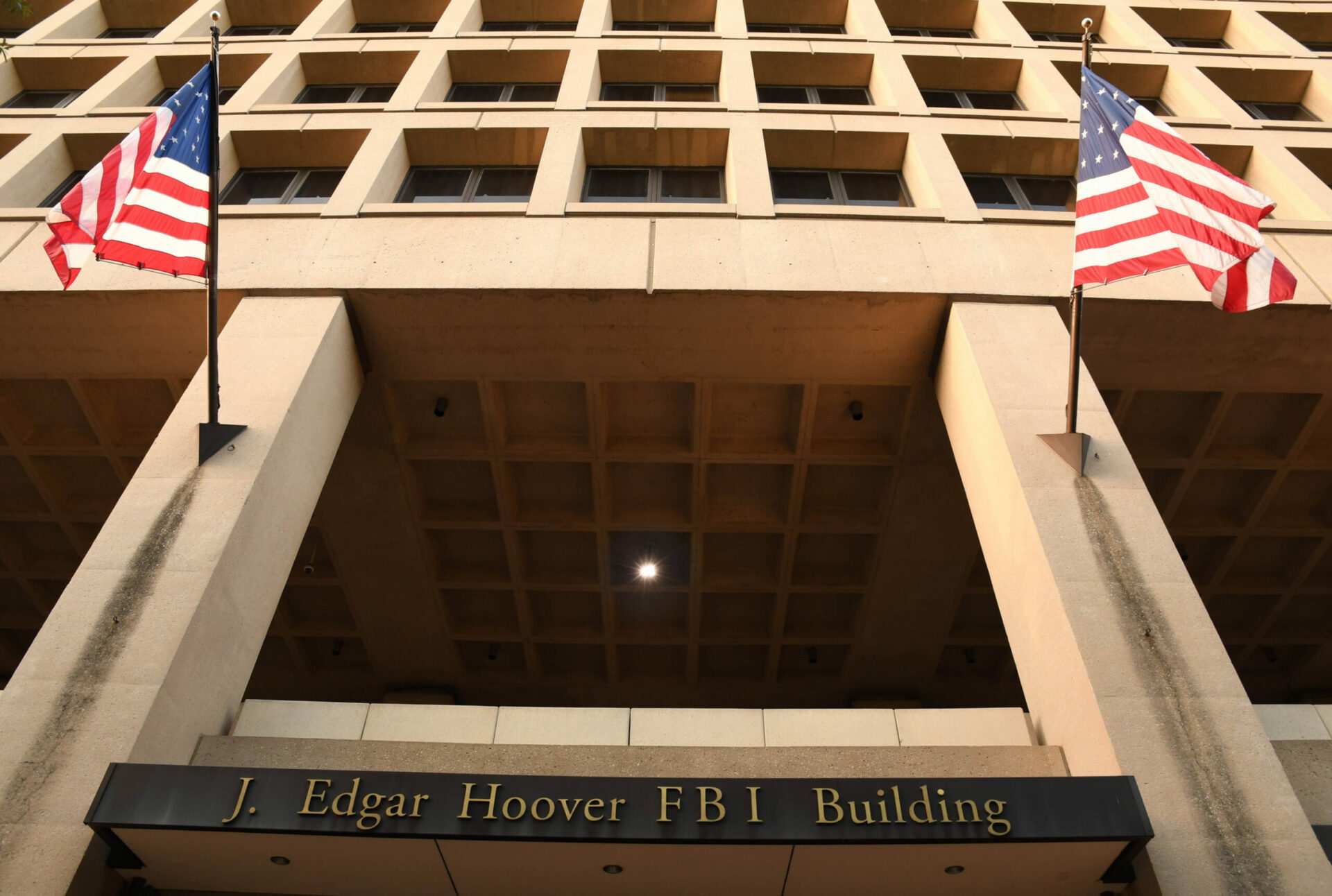
A former FBI official who oversaw investigations into Hillary Clinton’s use of a private email server and the Donald Trump campaign’s alleged collusion with the Russian government had dozens of unauthorized contacts with the media and accepted unauthorized gifts from members of the media, a Department of Justice Inspector General investigation first revealed this week.
The DOJ previously described the FBI official’s unauthorized behavior in a two-page 2018 investigative summary which was released last year and did not name the official. In response to a Freedom of Information Act (FOIA) request by Washington Free Beacon investigative reporter Chuck Ross, the DOJ released another 27 pages of documents on Monday that did identify the FBI official in question as Michael Steinbach.
Steinbach served as executive assistant director (EAD) of the FBI’s National Security Bureau (NSB) until 2017.
“The OIG investigaiton substantiated the allegation that Steinbach had numerous unauthorized contacts with the media from 2014 through 2016, in violation of the ‘Public Affairs (PA) Manual,’” a partially redacted synopsis of the inspector general report states.
“Steinbach had hundreds of contacts with the media for several years as Assistant Director (AD) for the Counterterrorism Division (CTD) starting in June 2014 and then after his promotion to EAD of NSB,” Inspector General Michael Horowitz wrote in the investigative synopsis. “This media contact included social engagements outside of FBI headquarters without any coordination from Office of Public Affairs (OPA), involving drinks, lunches and dinners.”
In his leadership role in the NSB in 2016, Steinbach answered directly to FBI deputy director Andrew McCabe. At the time, the NSB was investigating Clinton and Trump.
The investigation found Steinbach had at least 27 in-person meetings with seven media members outside of FBI Headquarters between April 2014 and the date of his retirement in February 2017 and found no evidence that Steinbach coordinated with OPA before these meetings.
The investigative documents also included several text exchanges between Steinbach and various reporters, including at least one CNN reporter. In that exchange, Steinbach discussed getting tickets to the White House Correspondents Dinner. The CNN reporter texted Steinbach saying, “I put you on the map and now you’re cheating on me with [reporter’s first and last name]?” to which Steinbach replied, “I kept waiting for my invite from you.”
CNN did not respond to a Politico request for comment on this exchange between Steinbach and one of its reporters.
The inspector general concluded that Steinbach “violated Title 5 Code of Federal Regulations (CFR) §2635.202, the DOJ Ethics Handbook, and the FBI Ethics and Integrity Program Policy Guide when he accepted tickets from the media to attend two black tie dinner events, one valued at $225 and the other valued at $300, and failed to notify the Office of Integrity and Compliance.”
The new documents do not accuse Steinbach of unauthorized disclosures to the media, however, Horowitz’s office has raised concerns that unsupervised contacts between FBI officials and members of the media can lead to leaks and make them difficult to investigate.
A passage from a larger 568-page inspector general report on the matter, released in 2018, states “we do not believe the problem is with the FBI’s policy, which we found to be clear and unambiguous.” A passage from the newly released documents shows some FBI employees disputed the clarity of the agency policies, and one employee said the FBI policy was “not clear on what was required or considered approved and that ‘coordination with OPA’ was completely undefined.”
A passage from the newly released documents states “prosecution was declined,” but the remainder of the line was redacted, leaving the context of the sentence unclear.
Steinbach is not the only FBI official who had concerning contacts with the media. An inspector general report obtained by Ross (then with the Daily Caller), found that a top FBI press officer by the name of Michael Kortan accepted tickets to baseball games from a CNN journalist in May 2016 and September 2016 and Kortan also accepted tickets from a New York Times reporter. Kortan’s media contacts were noted in the inspector general’s larger 2018 report on the FBI’s handling of the Clinton investigation.